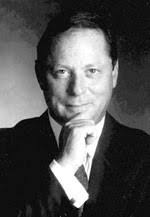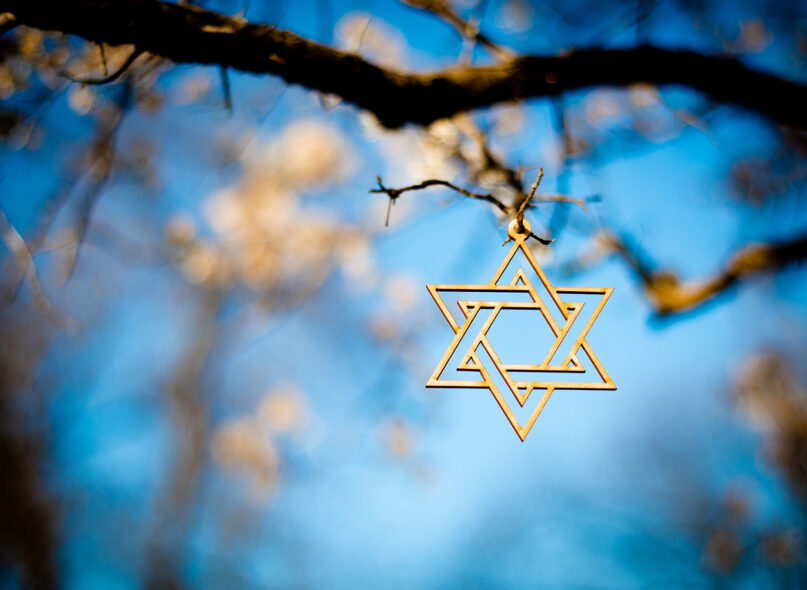(RNS) — My first rabbi died this past week.
In reality, he wasn’t really my first rabbi. My first rabbi would have been the rabbi at the now-defunct synagogue in Old Bethpage, New York, where my family belonged when I was quite young.
My second rabbi would have been the rabbi at the larger, more prosperous synagogue in nearby Wantagh, where I spent my teen years.
Both of those rabbis were kind men who were good pastors to their congregations, and my family respected them.
But, they were not “my” rabbis, because I never chose them to be my rabbis.
No, my first rabbi was the rabbi that I chose for myself when I was 16 years old, and that is the rabbi that I mourn today.
Rabbi Dannel Schwartz, the founding rabbi of Temple Shir Shalom in West Bloomfield, Michigan, was killed this past week as he and his wife and father-in-law were driving from Maine to their home in Florida. He was 77 years old.
His death — no, his life — takes me back.
I am 16 years old, and I am working as a student teacher in my religious school. Back in those days, the Reform movement had institutes for student teachers at the Eisner Camp in Great Barrington, Massachusetts, during school breaks. The organizers would expose us to great teachers, who would inspire us to want to become great teachers. In retrospect, it was one of the greatest programs that the Reform movement ever ran.

Rabbi Dannel Schwartz, of blessed memory. (Courtesy photo)
That is where I met Dannel Schwartz. He was 25 years old, and he was a rabbinical student at Hebrew Union College-Jewish Institute of Religion in Manhattan. He was a faculty member at a student teacher institute. He gave three lectures to us — one on Martin Buber, in which he taught us all about the power of the I-thou relationship; one on Mordecai Kaplan, in which he taught us about rational Jewish thinking; and the final one, on the Holocaust.
This was 1971 — Passover/Easter vacation, to be precise. Today, there is no shortage of conversation about the Holocaust. It is, sadly and necessarily, ubiquitous in Jewish life.
But in 1971? No one was talking about the Holocaust. No one called it the Shoah. We barely called it the Holocaust; we barely had the vocabulary for it.
Dannel spoke about the Holocaust to this group of 15- and 16-year-olds — for more than an hour. Without a note. He spoke about how it happened; about the history of antisemitism; how the conditions in Germany made the Holocaust possible; and mostly, how America and American Jews had failed to do anything about it. He showed us a tattered document, a report by a prominent American Jewish defense organization about the persecution and execution of German Jews, from 1935.
He thundered at us (which was necessary, because some of us, having stayed up all night, were frankly bleary eyed): “We knew that it was happening!”
I got up from that lecture, and I said to myself: “That’s it. I am becoming a rabbi.”
That was, to quote the final words of the movie “Casablanca,” the “beginning of a beautiful friendship.” Despite almost a decade of age difference, Dannel and I became fast friends. We sought each other out. He nurtured and nourished my rabbinical ambitions. Some years later, when I was a student at SUNY Purchase, and he was the assistant rabbi at Temple Israel in New Rochelle, New York, I came to work for him — teaching music to his youth group kids and singing at youth High Holy Day services.
Dannel was not tall, but his charisma and presence allowed him to tower over others. You didn’t mess with him. Fifty years ago, during the 1973 Yom Kippur War, I sat in his office in New Rochelle, and I watched him, and I listened to him. I watched him go through his temple roster, and I listened to him call his wealthiest members, and I listened to him say to them: “You are one of the richest Jews in this community. You have been deeply blessed. Now it is time for you to take that richness and that blessing, and put it to work for the Jewish people. Your people needs you — now!”
I was mesmerized. Decades later, when I was a rabbi, I tried that trick. It didn’t work nearly as well.
The decades skip ahead. I became a rabbi, and I started my career in south Florida. By then, Dannel was in Detroit, and when he would come down to Palm Beach during the winter, we would hang out. Years later, when I started writing books, he would invite me to his congregation in the Detroit suburbs to speak, and I would invite him to my various congregations to speak as well.
Always charismatic, always clear, always pointed, always with a redemptive story that would open the heavens. On his good days, he was almost as good as Elie Wiesel.
Jump across the decades. He would retire and divide his time between Maine and Florida. We would bond, once again, at his house in Florida, under the amused eye of his beloved wife, Suzi. We would share our boyish infatuation with archeological antiquities, which we both had purchased from Mr. Baidoun on the Via Dolorosa in the Old City of Jerusalem. Sure enough; whenever I would visit Mr. Baidoun, he would regale me with stories about Dannel’s most recent purchases, and I would regale Mr. Baidoun with stories about Dannel from my youth. We would laugh together.
Not today. Today, I cry.
For me, the enduring lesson of Dannel Schwartz’s life was the influence that he had on me, and countless other young people. The adolescent Jewish kids whose lives he touched — we had all gone to religious school. Being suburban Jewish kids of the 1960s and early 1970s, our Jewish education was fairly mediocre. What we osmosed from our religious school experience was simply this: It was good to be Jewish. It was good to be proud to be Jewish. It was good to hang out with other Jewish kids. That was about it (and, frankly, that wasn’t that bad).
What I got from Dannel that week at the Eisner Camp — three lectures on Buber, Kaplan and the Holocaust — was something new. It was the promise of content and substance. There was something to being Jewish that no one had ever gotten around to telling us. Or, if they had, they had not taught it to us in any way that we could hear or feel or internalize.
I fell in love. It was total I-thou — with Judaism, with the Jewish people and with the girl that I had met on that institute (who, coincidentally or not coincidentally, lived in the same building as Dannel in Riverdale) — and with Dannel himself. My profound love for the man; my teenaged, something-resembling-love for this young woman; my emerging love for Judaism and the Jewish people — they were all woven together like the strands of a loaf of challah.
Several years ago, my friend and teacher, Rabbi Donniel Hartman of the Shalom Hartman Institute, gave a lecture on God at my congregation in West Palm Beach. One of our religious school kids — a very talented, charismatic kid of 14 — came to hear Rabbi Hartman. Rabbi Hartman and this kid made eye contact, and the kid smiled and nodded.
I know the drill. The kid fell in love. With Rabbi Hartman and/or with Judaism. After Rabbi Hartman’s lecture, I took that kid aside, and I said to him: “I want you to remember this evening for the rest of your life. Whatever else happens to you in your life, I want you to remember this evening as the evening when something passed between Rabbi Hartman and your soul. Whatever you want to do with it, that’s up to you. But, it happened.”
Because it happened to me, as a 16-year-old kid in the spring of 1971.
My family has loved the Eisner Camp for more than a half century — two generations of Salkin boys have gone to that camp and worked at that camp.
But, from time to time, even as an adult during the summer, I would go to the library at the manor house at the Eisner Camp, and I would sit there, and I would say to myself: This is where my soul came alive.
It was Dannel’s doing. I had told him that, many times. He chose not to believe it.
Believe it, my friend and teacher. Please, believe it.
May the memory of Rabbi Dannel Schwartz be a blessing.






